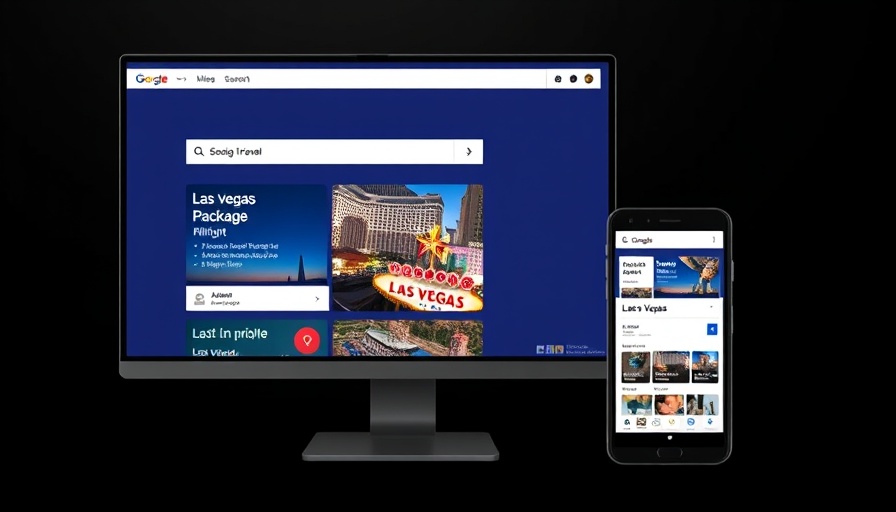
The Dawn of AI-Driven Travel Search
Google is on the brink of revolutionizing travel search through its upcoming AI Mode, which promises to transform the way personalized travel inquiries are answered. This innovation is designed not just to show results, but to engage users in a dynamic, conversational exchange, making it feel as if they are consulting a personal travel advisor. With features that allow refined queries like "Which family tours in Costa Rica are best for kids under 8?" AI Mode ensures that comprehensive answers are delivered immediately, eliminating the need to browse multiple websites.
Travel Brands Must Adapt or Become Invisible
In light of these changes, travel brands are being urged to adapt quickly. Brennen Bliss, CEO of Propellic, highlights that traditional methods of engagement—like blogs and itineraries that drove traffic and engagement—may soon lose their effectiveness. Instead of linking to various sites for comparisons, users might rely solely on Google’s AI, potentially making brands obsolete if they fail to optimize their presence within this new ecosystem.
The Risks of Staying Behind
As travel companies traditionally depend on top-of-funnel content for SEO and visibility, the advent of AI Mode raises pressing concerns. With AI as the new gatekeeper of travel information, brands could find their carefully crafted content merely serving to train the AI instead of drawing visitors directly. As travelers become accustomed to instant responses and personalized service, failure to engage effectively with AI could place brands at risk. Ignoring this trend could lead to what Brennen Bliss calls "invisibility" in an increasingly digital landscape.
The Value of Conversational AI in Travel
Despite the technological upheaval, key decisions in travel still fundamentally hinge on trust and context—areas where conversational AI excels. Travelers still seek information on accessibility, age-appropriateness, and weather forecasts, which personalized AI interactions can address effectively. As more users rely on AI-driven search, the need for trustworthy answers that can influence decision-making will grow, presenting both challenges and opportunities for travel brands.
Future Predictions: How AI Will Shape Travel
Looking ahead, it is clear that AI Mode will redefine not only how searches are conducted but potentially smoothen the entire travel planning process. Brands that embrace this technology early may not only maintain relevance but could thrive as industry leaders in innovation. Future advancements could lead to even more sophisticated conversational interfaces capable of predicting needs based on user preferences, fundamentally enhancing the travel planning experience.
Actionable Insights for Travel Brands
Travel brands must consider updating their content strategies to align with AI Mode. This includes optimizing web content to be more suitable for AI algorithms and ensuring that they provide quality data inputs that assist in training AI with reliable information. Partnering with digital marketing agencies specialized in AI-driven strategies can help brands navigate this new terrain. Moreover, engaging with AI tools in real-time can help brands stay ahead of changing search trends, ensuring they remain visible and relevant.
Conclusion: Embracing Change for a Bright Future
The travel industry's landscape is about to change drastically with the implementation of AI Mode in Google Search. Brands that understand and adapt to these changes will not only survive but thrive. Embracing technology is no longer an option but a necessity to stay relevant in the evolving digital travel marketplace. As we step into this new era, now is the time for travel brands to innovate and connect effectively with their audience.
To take advantage of these insights and begin your journey to navigate the upcoming changes in the travel landscape, contact us today at www.sitinmyseats.com for more information or to book a free travel consultation!
 Add Row
Add Row  Add
Add 




Write A Comment